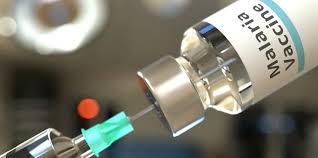
Ethiopia is preparing to become the first country in Africa to roll out the groundbreaking R21/Matrix-M malaria vaccine, a move aimed at curbing a dramatic rise in malaria cases across the country.
Health authorities hope the initiative will significantly reduce the disease burden, particularly among young children, and set a precedent for the continent’s broader fight against malaria.
The World Health Organization (WHO) reports that between January and October 2024, Ethiopia recorded more than 7.3 million malaria cases, resulting in 1,157 deaths – nearly double the 4.1 million cases reported the previous year.
The most affected regions include Oromia, Amhara, Southwest, and Southern Ethiopia Regional State, accounting for 81% of reported infections.
Developed by the Jenner Institute at the University of Oxford in collaboration with the Serum Institute of India, the R21/Matrix-M vaccine has been recommended by the WHO since October 2023. Clinical trials indicate efficacy of up to 75%, making it a significant advancement over previous vaccines.
The rollout targets children aged 5 to 36 months, with a four-dose schedule administered at 6, 7, 8, and 18 months, integrated into Ethiopia’s routine immunization program.
Affordably priced at between $2 and $4 per dose, the vaccine is designed to be accessible. The Serum Institute of India can produce up to 100 million doses annually, ensuring sufficient supply to meet demand. Health experts hope the vaccine, combined with existing measures such as insecticide-treated bed nets and indoor spraying, will sharply reduce child mortality, which remains alarmingly high due to malaria in Ethiopia and across Africa.
However, challenges remain. Prolonged conflicts in regions such as Oromia and Amhara have disrupted access to vulnerable populations and weakened vector control measures. Approximately 3.3 million internally displaced people face living conditions that heighten malaria transmission, complicating the vaccine’s reach.
WHO Director-General Dr Tedros Adhanom Ghebreyesus hailed the rollout as a major milestone. “As a researcher, I dreamed of the day we would have a safe and effective vaccine against malaria. Today, we have two,” he said. “This second vaccine is an essential additional tool to protect more children faster and move towards a malaria-free future.”
Ethiopia’s initiative forms part of a wider African movement, with countries including Uganda, Zambia, Burkina Faso, and the Central African Republic already implementing malaria vaccination programs. Supported by Gavi, UNICEF, and the WHO, the rollout underscores a renewed continental commitment to combat malaria and save hundreds of thousands of young lives.



